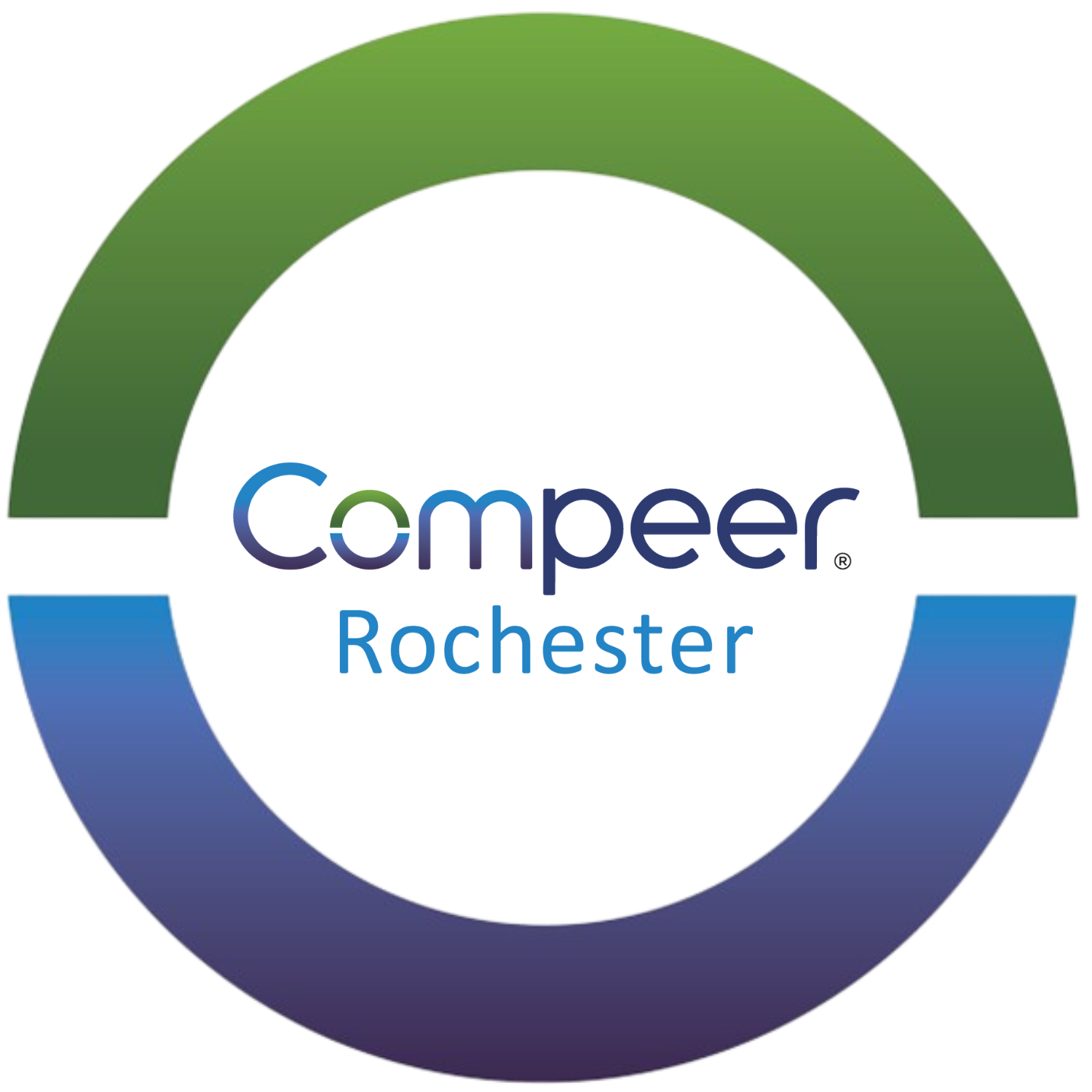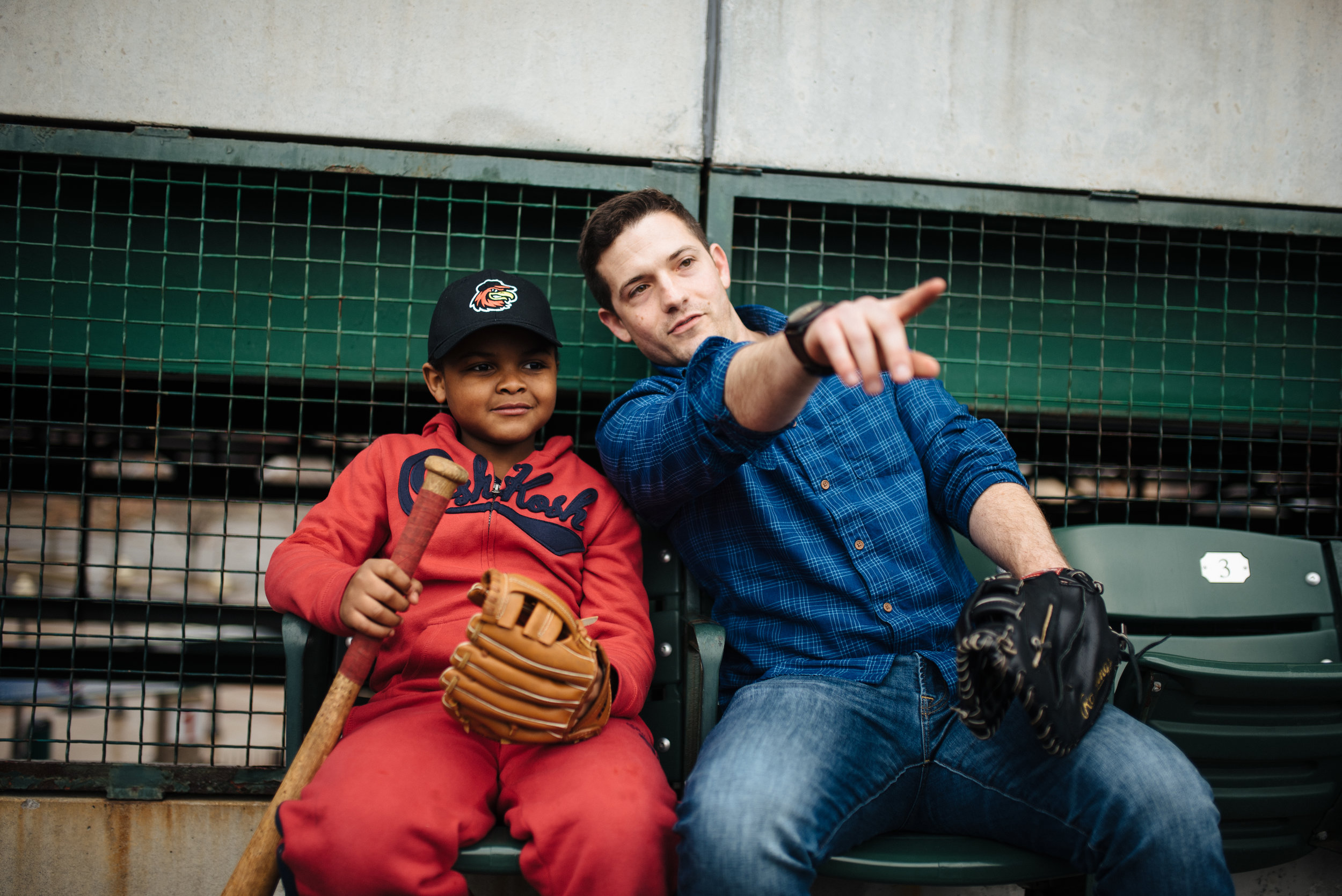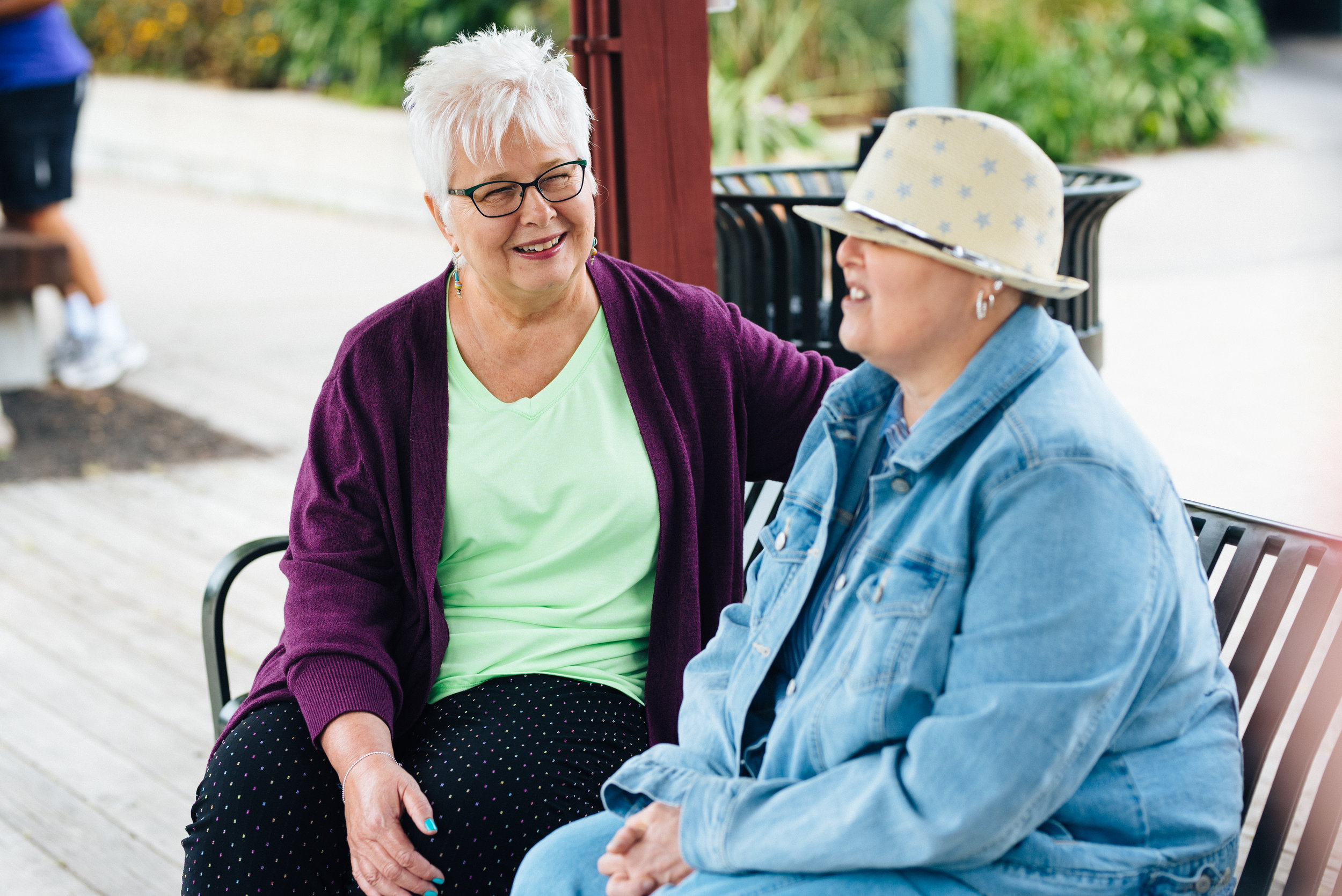OUR MISSION
Through the power of human connection, Compeer serves as a bridge to better mental health and community integration for all.
OUR VISION
We envision a day when all communities embrace individuals and their families living with mental health challenges; when prevention begins early with children and their families; when living, learning, working and volunteering in the community is given expression through the social inclusion of all individuals and supported by the power of human connection and hope.
FOUNDED FOR FRIENDSHIP
During her long rehabilitation from a near-fatal automobile accident in 1975, Rochesterian Bernice “Bunny” Skirboll discovered the healing power of friendship and vowed to make a difference in others’ lives. She got involved in the Mental Health Association’s Adopt-A-Patient Program and soon transformed it into the community-based Compeer model, serving as Executive Director from its inception through 2006.
Under Skirboll’s leadership, Compeer grew from a small program in Rochester to an internationally recognized mental wellness model and organization — one that has demonstrated solid results and been replicated around the globe.
Today, the Compeer Rochester team carries forward our founder’s vision and mission to provide healing friendship to community members living with mental health challenges — and to shatter the stigma surrounding mental health conditions. The Compeer Model has been replicated throughout the US and Australia, with additional affiliates in Canada and the United Kingdom.
Compeer Rochester is an affiliate of Compeer International.
1973
The Mental Health Association in Rochester, NY establishes the Adopt-A-Patient program to enable formerly institutionalized patients to live successfully in the community. Our founder, Bernice Skirboll, joins them in 1975.
1977
Skirboll develops Adopt-A-Patient into a community-based mental health support program and changes the name to Compeer (Companion + Peer = Compeer).
1980
The New York State Office of Mental Health supports expansion of Compeer to other New York State communities. The Adult Program is established.
1987
Compeer is funded by the New York State Office of Mental Health to serve youth ages 6 to 18.
1996
Compeer establishes its first international affiliate, in Sydney, Australia.
2004
Compeer Rochester receives a federal grant for the Mentoring Children of Incarcerated Parents Program.
2005
Compeer’s supportive friendship/mentoring model is recognized by the American Psychological Association as a Best Practice for Recovery.
2011
CompeerCORPS is born as Compeer Rochester partners with the Rochester Veterans Outreach Center to provide community support to returning military members.
2013
The Compeer model is recognized as an evidence-based model by the Substance Abuse and Mental Health Services Administration (SAMHSA). We are listed in the National Registry of Evidence Based Programs and Practices.
2013
Compeer celebrates its 40th anniversary with a renewed commitment to serving people in our community living with mental health conditions.
2015
CompeerCORPS joins forces with the Monroe County Veterans Services Agency to expand and enhance its work with community Veterans through the Private Joseph Dwyer Program and Fund.
2017
Compeer Rochester begins offering Home and Community Based Services for Adults, a Medicaid Managed Care Program.
2019
Compeer begins Children and Family Treatment and Supports, a Medicaid managed care program, and Youth Skillbuilding.
2020
Compeer begins the year with new leadership, followed by the COVID-19 crisis. Programming shifts to virtual and hybrid activities and services to meet growing mental health needs of the community.
2021
Compeer acquires OASIS Adaptive Sports, broadening the array of activities for Veterans in CompeerCORPS. Programs continue to adapt to ever-changing landscape of pandemic.
“The intervention Compeer offers — that getting away from loneliness and isolation — is so powerful. The impact it has on people with mental health challenges doesn’t always manifest itself in a big milestone or life change, but giving someone a human relationship fills a basic need that empowers them to lead a life that’s meaningful. And for the volunteers, it often helps them overcome preconceptions and gives them a totally different vision of what mental health conditions are.”
— Dana Frame, President/Executive Director from 1998-2019




